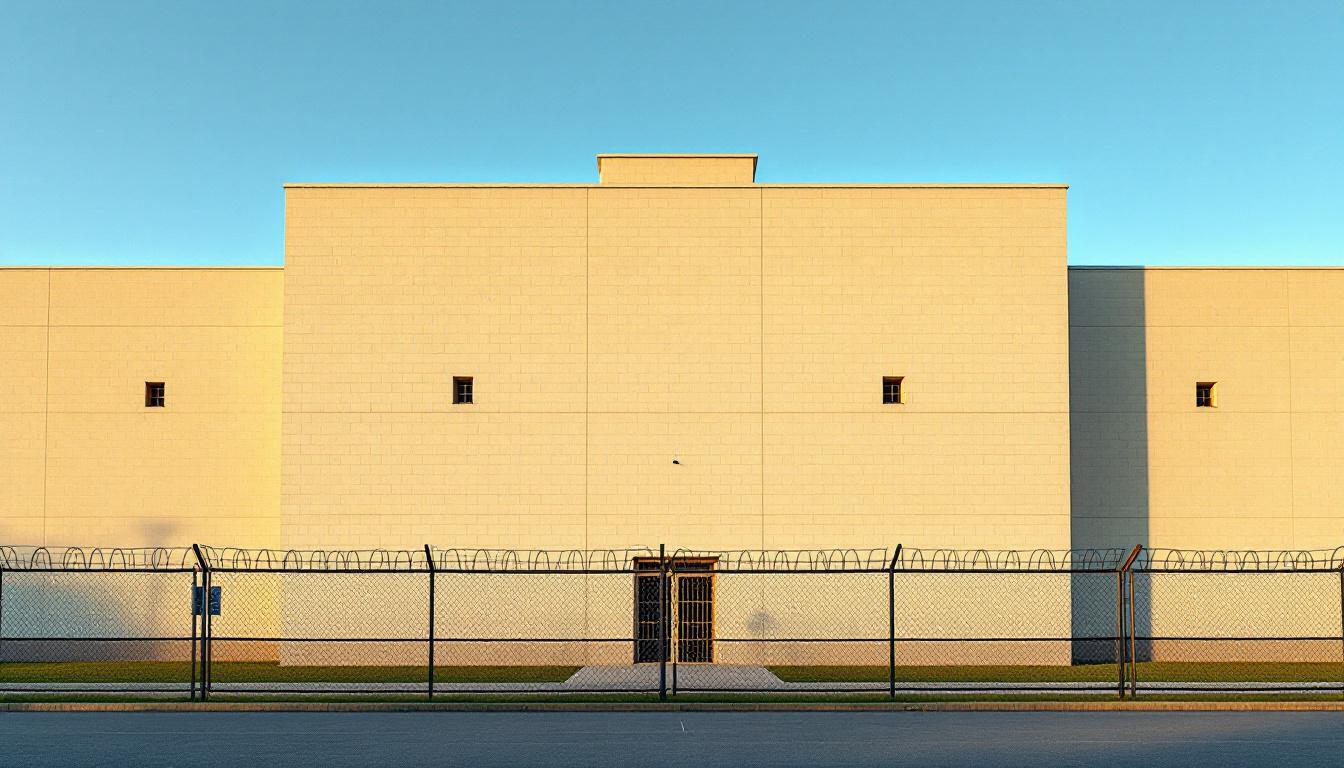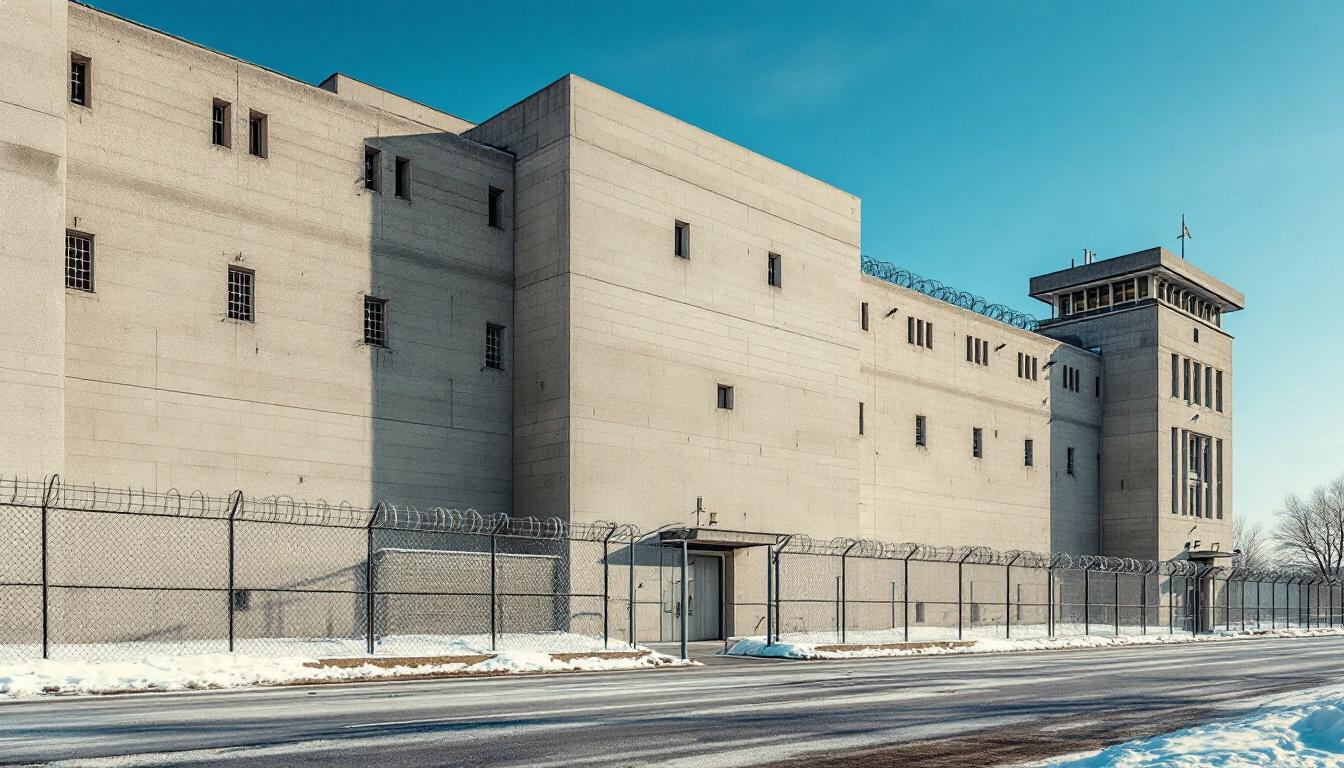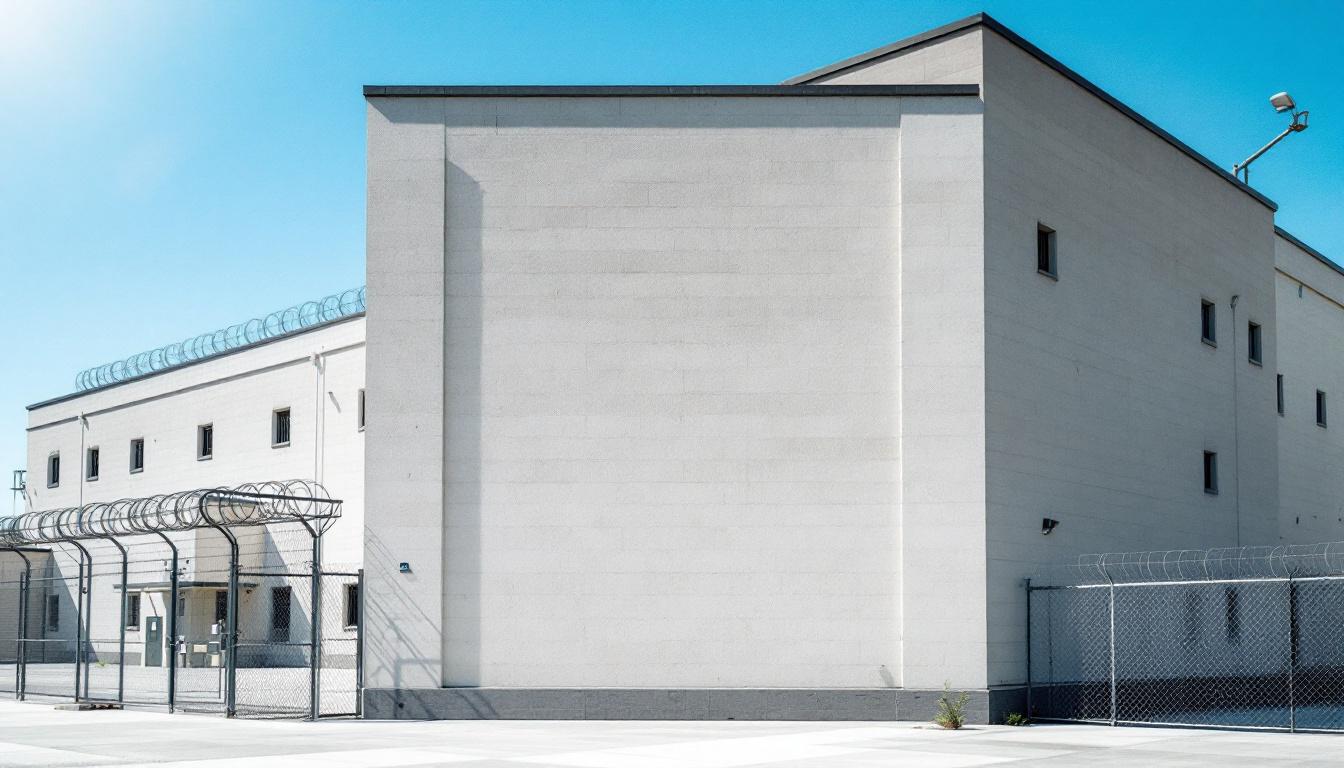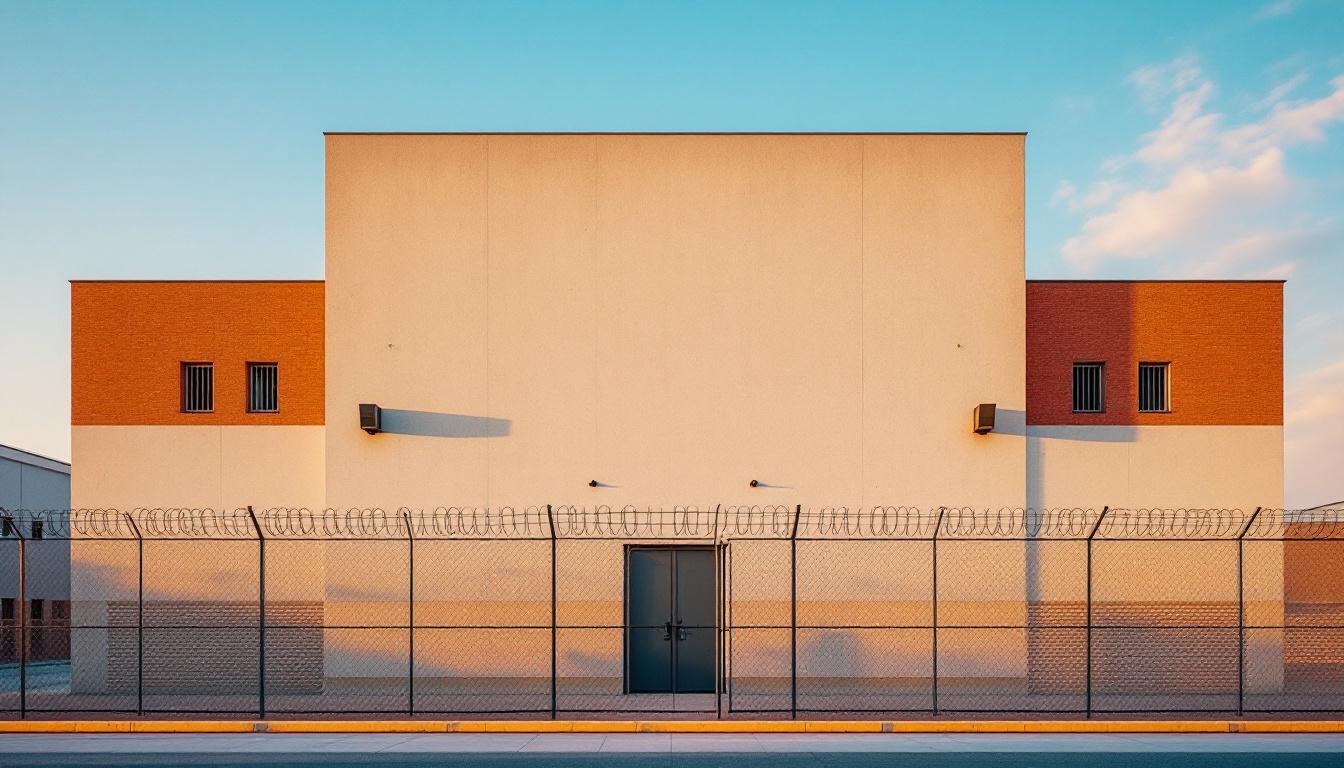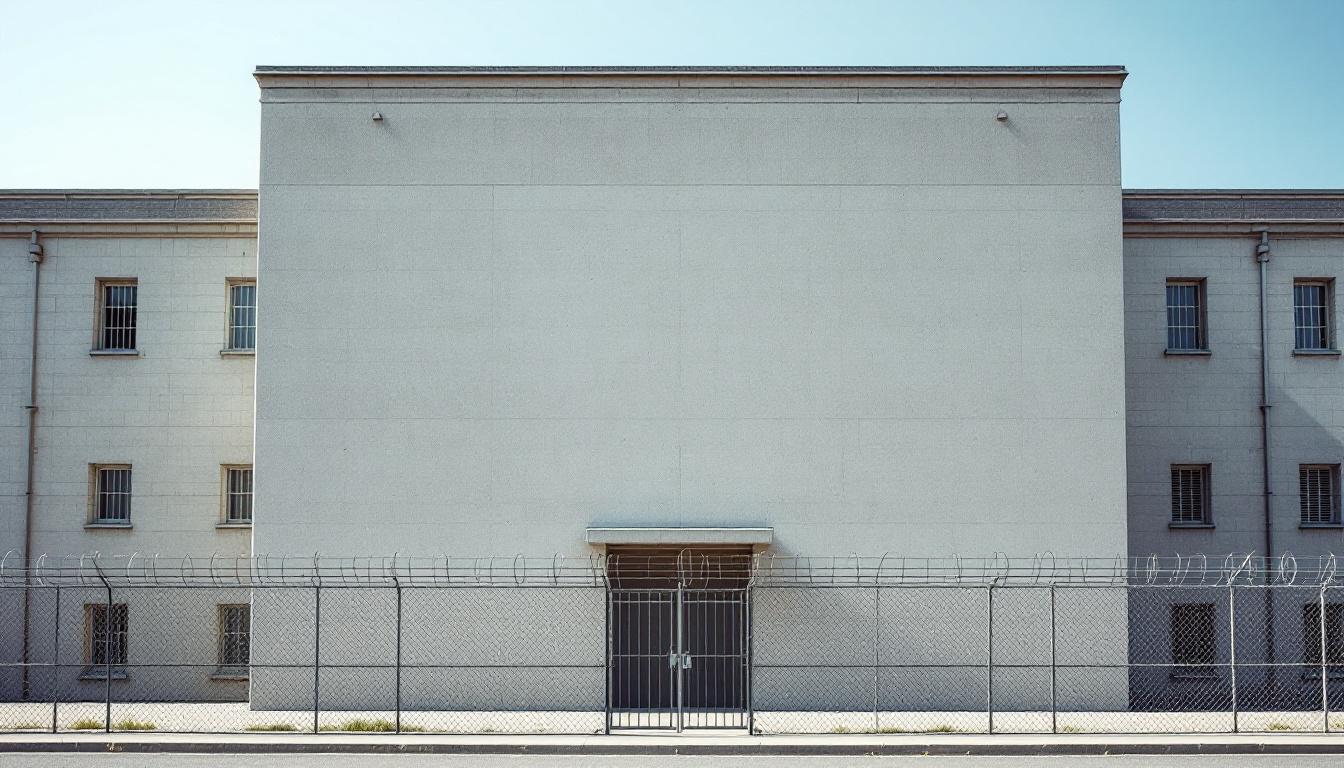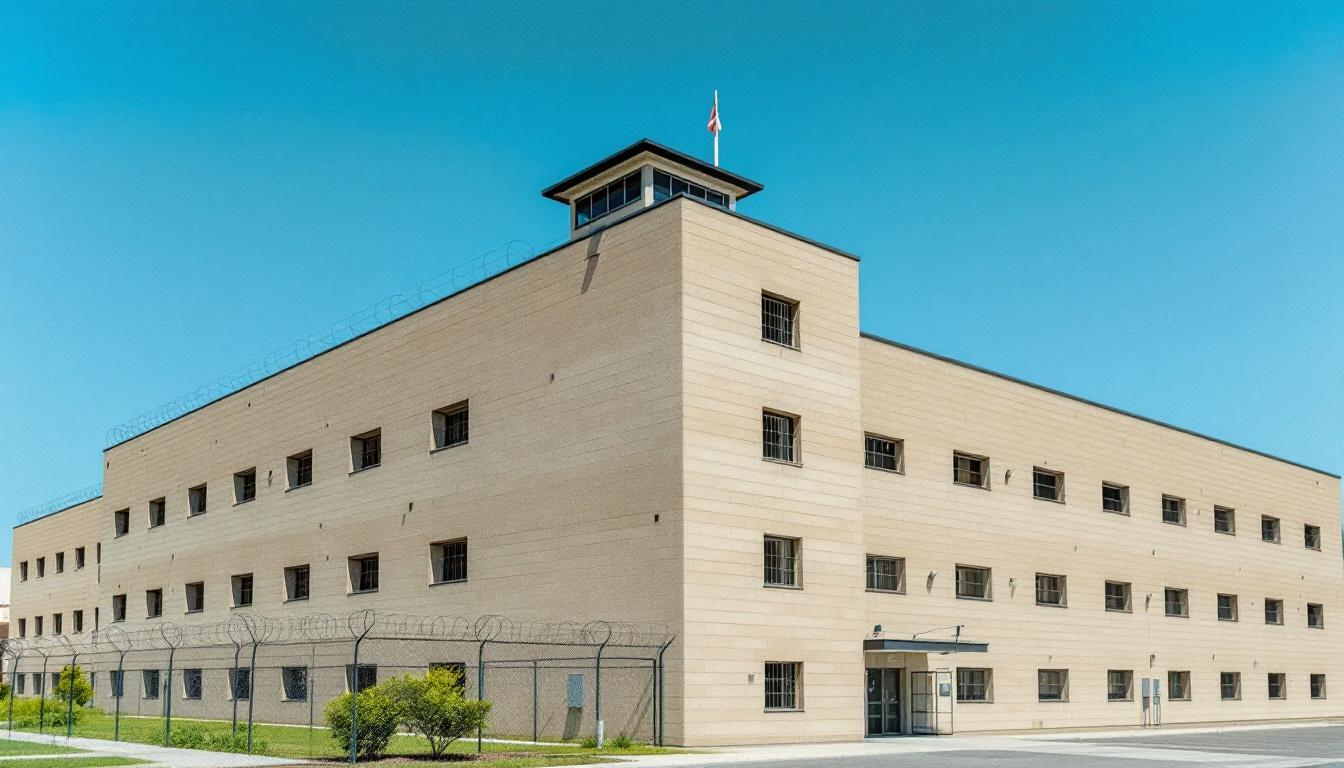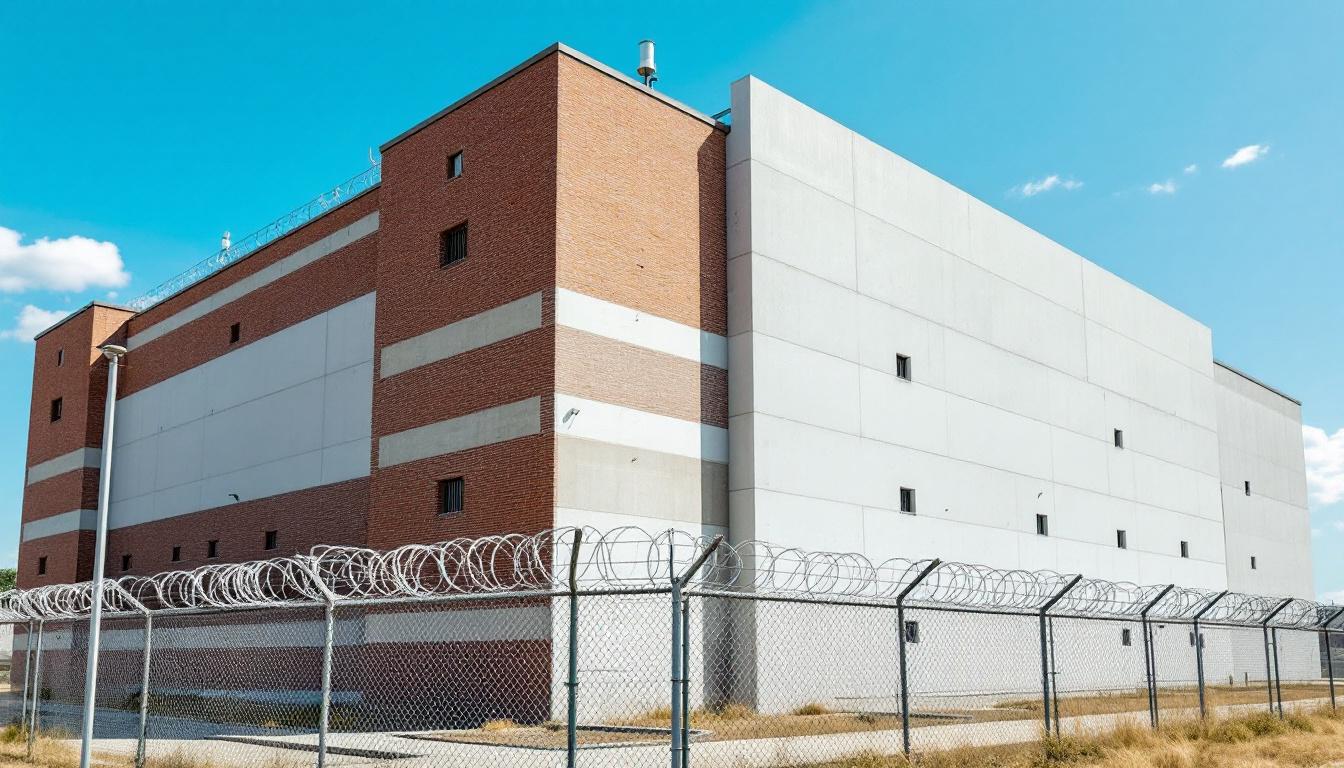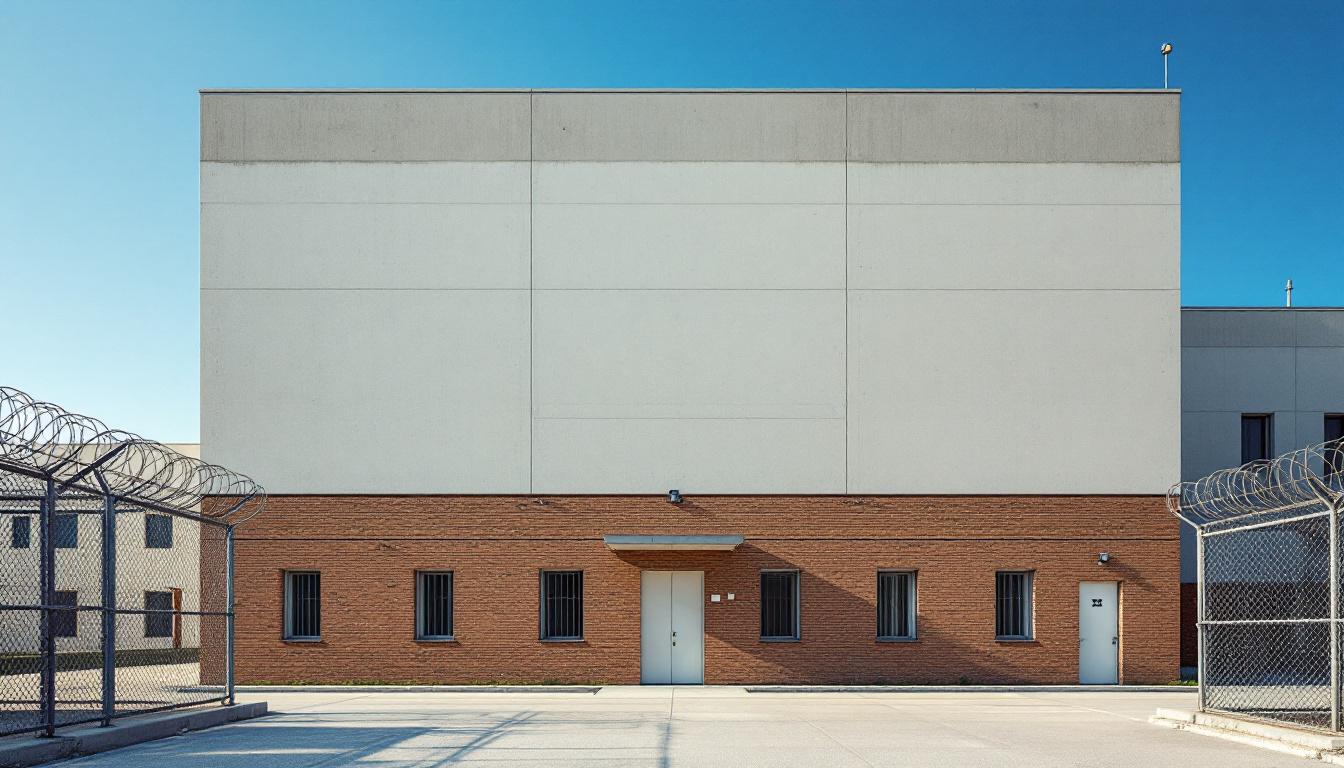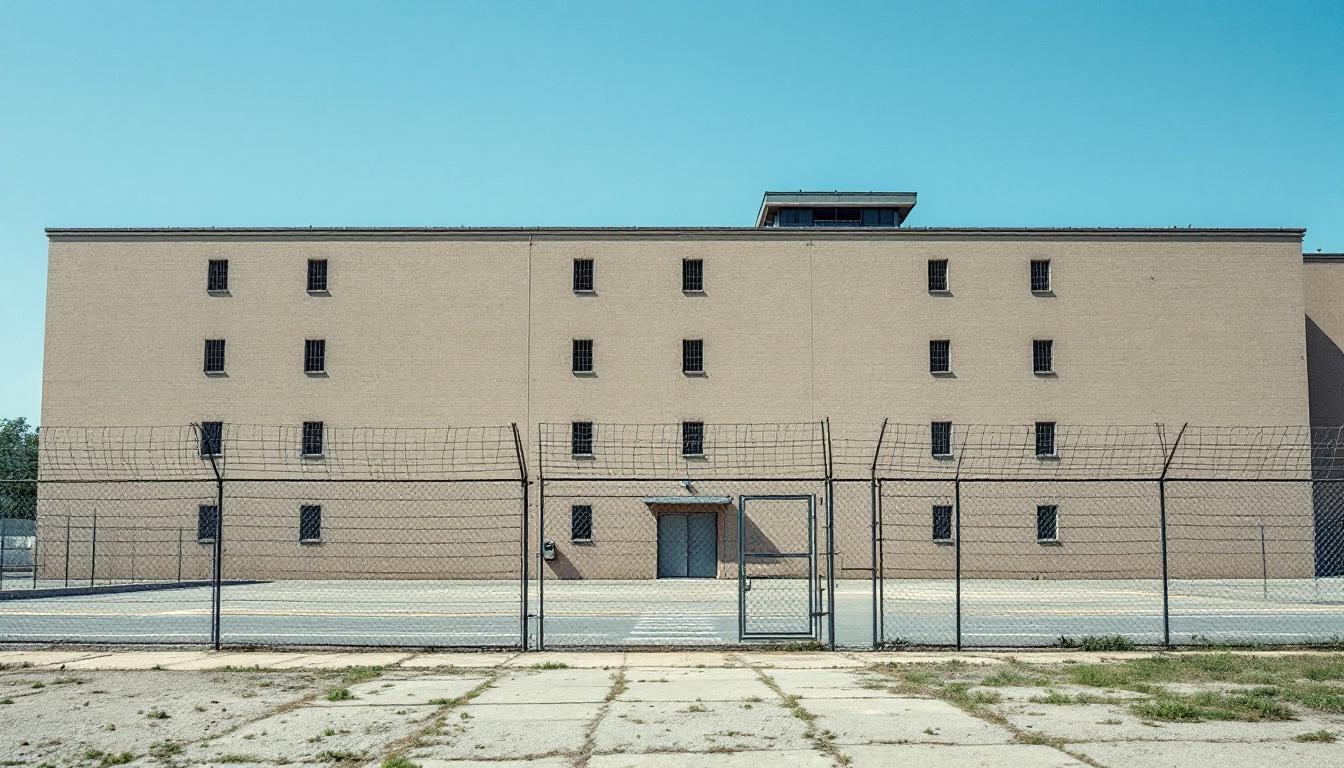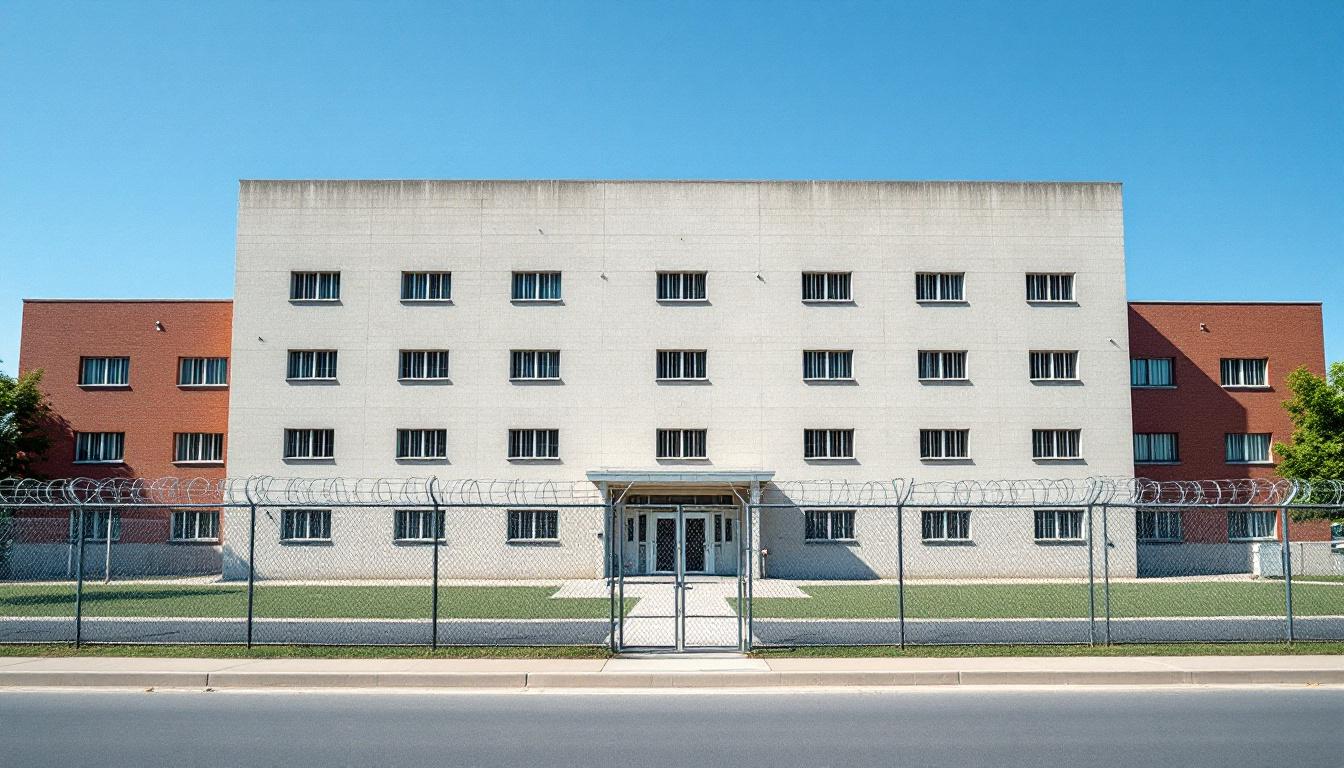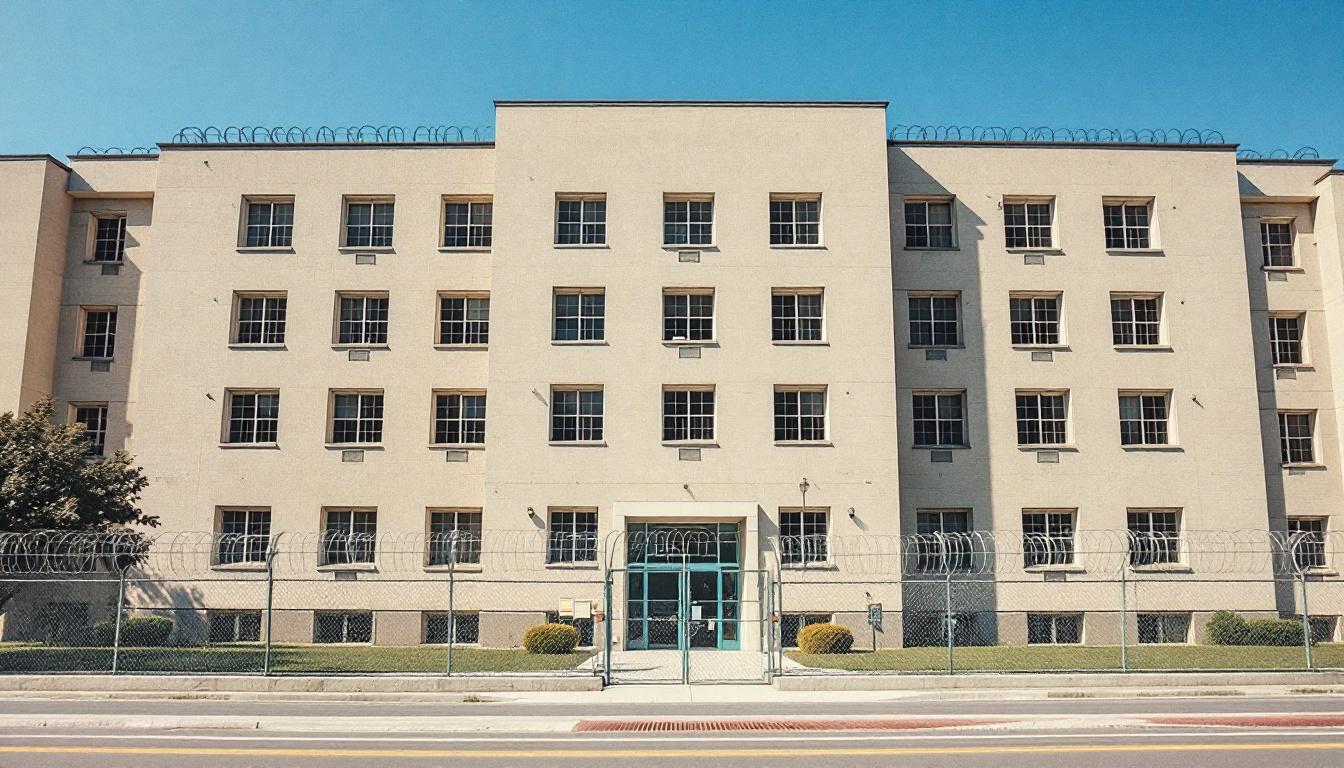
Quick Navigation
How to contact an inmate at Southwestern Regional Jail
This comprehensive guide will walk you through how to connect with an inmate at Southwestern Regional Jail. Follow the steps below to find an inmate and send letters and photos:
- Search for the inmate using our search tool below
- Create your account or log in to Penmate
- Write your message (up to 6,000 characters)
- Send instantly - inmates receive printed copies daily
Find an Inmate
Search for an inmate to start communicating today
Tip: You can search by first name, last name, or inmate ID number
To contact a person at Southwestern Regional Jail start by searching for the person on the official facility website. Perform a search by following these steps:
- Step 1: Enter their first name and last name into the search form and click "Search"
- Step 2: Locate their inmate record
- Step 3: Write down their Inmate ID and any housing information provided
Important! Be sure to enter the person's full name. Nicknames should not be used.
How to Send Messages to Inmates

You can use your phone or computer to send emails, letters, and photos to an inmate. Messages are sent electronically to inmate tablets or kiosks at the facility. If you would like to send a message, start by searching for an inmate at Southwestern Regional Jail.
Sending Photos and Postcards

A great way to send love and support to a loved one at Southwestern Regional Jail is to send photos and postcards. It only takes a few minutes to send photos from your phone and it makes a huge difference. You can also mail postcards with words of support and inspiration, or design your own postcard for special moments like birthdays and holidays.
Important! Be sure not to send any explicit photos or they may not be approved by the facility. You can also use a photo printing app like Penmate to make sure your photos are printed at the correct size (4x6 or 3x5) and are mailed according to the rules and regulations of Southwestern Regional Jail.
Frequently asked questions about Southwestern Regional Jail
-
How long does it take to deliver a message?
If you're sending an email message your letter is usually delivered within 24-48 hours. For messages sent via mail you should expect delivery within 3-7 days. All messages will need be approved by Southwestern Regional Jail.
-
How much does it cost to send a message to Southwestern Regional Jail?
You can send a message free using your phone or mail a message via USPS for the price of a $0.60 stamp and envelope. You can also purchase credits or e-stamps from services starting at $1.99.
-
What services can I use to contact an inmate at Southwestern Regional Jail?
Penmate
You can use Penmate to send letters and photos to an inmate from your phone. It's an easy way to stay in touch during your loved one's incarceration. Use the inmate locator to find an inmate's location and contact information, then you can send messages within a few minutes.
Securus messaging
Securus may be another option for communicating with an inmate at Southwestern Regional Jail. You can create a friends and family account and purchase credits to send messages. All messages will be reviewed and must be approved by the facility.
JPay
Some county jails and state prisons may support sending messages with JPay. You must register an account with the system, find your loved one, and purchase stamps to send messages. For some locations you can also attach photos.
Smart Jail Mail
You may also check if Smart Jail Mail is available at Southwestern Regional Jail. Smart Jail Mail is operated by Smart Communications and has contracted with some state and county jails. After purchasing credits, your messages and photos are sent to the facility, printed out, and then handed out to your loved one.
-
What is the mailing address of Southwestern Regional Jail?
Mailing address:
Southwestern Regional Jail
1300 Gaston Caperton Dr
Holden, WV 25625
Phone: (304) 239-3032Business hours:
- Monday: Open 24 hours
- Tuesday: Open 24 hours
- Wednesday: Open 24 hours
- Thursday: Open 24 hours
- Friday: Open 24 hours
- Saturday: Open 24 hours
- Sunday: Open 24 hours
-
What are the visiting hours at Southwestern Regional Jail?
Visiting hours at Southwestern Regional Jail vary by housing unit and security level. Generally, visits are scheduled on weekends and holidays, with some facilities offering weekday visits. Contact the facility directly at (304) 239-3032 or check their website for the current visiting schedule. Visits typically last 30-60 minutes and must be scheduled in advance.
-
What items are prohibited when sending mail to Southwestern Regional Jail?
Prohibited items typically include: cash, personal checks, stamps, stickers, glitter, glue, tape, staples, paperclips, polaroid photos, musical or blank greeting cards, hardcover books, magazines with staples, and any items containing metal or electronics. Only send letters on plain white paper with blue or black ink. Photos must be printed on regular photo paper (no Polaroids). Always check with Southwestern Regional Jail for their specific mail policies.
-
How do I send money to an inmate at Southwestern Regional Jail?
You can send money to an inmate at Southwestern Regional Jail through several methods: 1) Online using JPay, Access Corrections, or the facility's approved vendor, 2) Money orders mailed directly to the facility with the inmate's name and ID number, 3) Kiosks located in the facility lobby, or 4) Over the phone using a credit or debit card. Fees vary by method, typically ranging from $2.95 to $11.95 per transaction.
-
Can I schedule a video visit with an inmate at Southwestern Regional Jail?
Many facilities now offer video visitation as an alternative to in-person visits. At Southwestern Regional Jail, video visits may be available through services like Penmate, Securus Video Connect, GTL, or ICSolutions. Video visits typically cost $10-20 for 20-30 minutes and must be scheduled in advance. You'll need a computer or smartphone with a camera and reliable internet connection. Contact the facility for their specific video visitation policies and approved vendors.
-
What identification do I need to visit an inmate at Southwestern Regional Jail?
All visitors must present valid government-issued photo identification such as a driver's license, state ID, passport, or military ID. Minors must be accompanied by a parent or legal guardian who can provide the minor's birth certificate. Some facilities require visitors to be on the inmate's approved visitation list, which may require a background check. Contact Southwestern Regional Jail for specific ID requirements and visitor approval procedures.
-
How can I find out an inmate's release date?
To find an inmate's release date at Southwestern Regional Jail, you can: 1) Use the online inmate search tool if available, 2) Call the facility's records department, 3) Contact the inmate's case manager or counselor, or 4) Have the inmate provide this information during a call or visit. For privacy reasons, some facilities only release this information to immediate family members.
Facility Overview
Contact Information
Southwestern Regional Jail1300 Gaston Caperton Dr
Holden, WV 25625
Phone: (304) 239-3032
Official Website
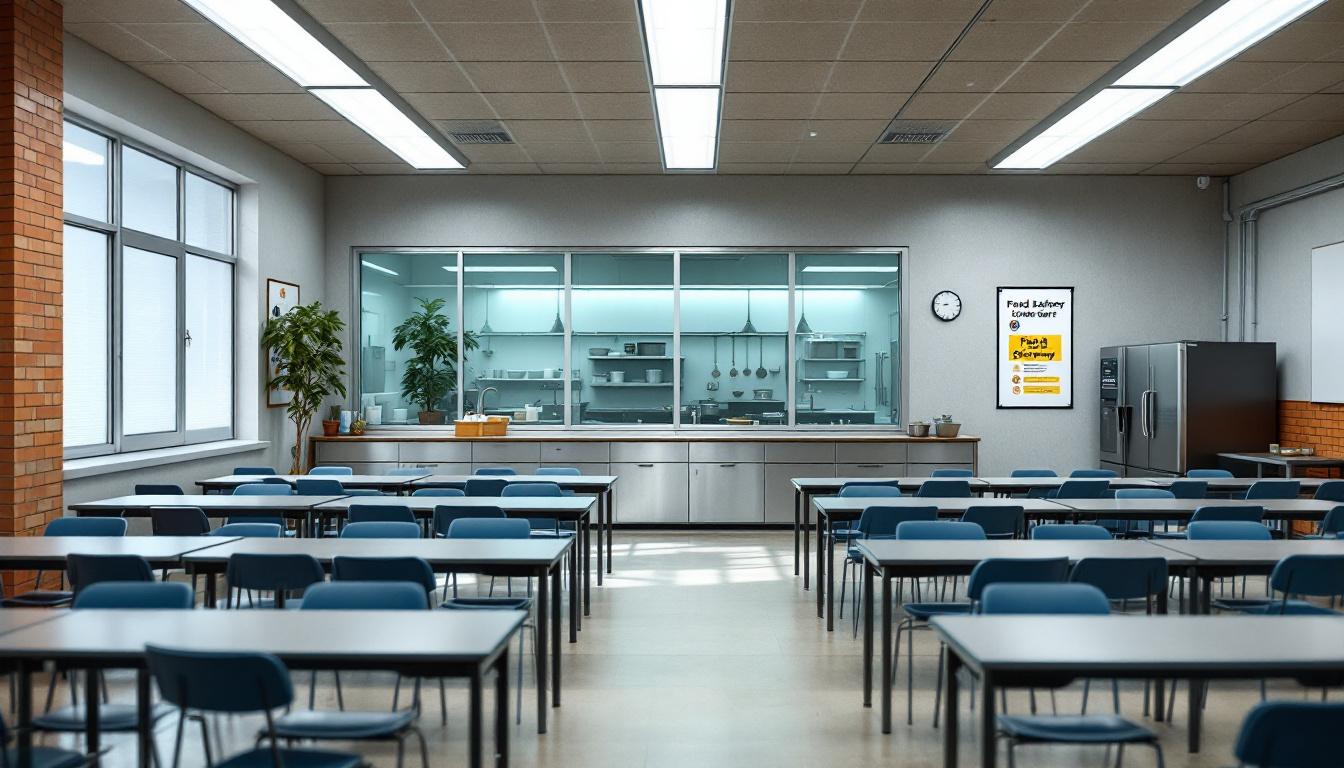
About Southwestern Regional Jail
Regional correctional facilities across West Virginia's mountainous terrain serve as vital bridges between public safety enforcement and community reintegration, with Western Regional Jail, WV standing as a key component in this comprehensive approach. Located in Phoenix, this WV correctional facility operates under an operational philosophy that emphasizes both secure custody and meaningful preparation for individuals' eventual return to their communities. The facility typically maintains connections with local organizations and service providers throughout the region, recognizing that effective corrections work extends far beyond the physical boundaries of any single institution.
The population services offered at Western Regional Jail generally reflect a commitment to addressing the diverse needs of individuals from across the surrounding counties. Programming may include educational opportunities, substance abuse counseling, vocational training, and mental health support services, all designed to equip residents with practical skills for successful community reintegration. The facility's approach often emphasizes collaboration with family members and community partners, understanding that sustainable positive outcomes require strong support networks. Staff typically work to maintain communication channels that help preserve important relationships while individuals complete their sentences.
Phoenix's location within West Virginia's correctional network allows this county jail to serve multiple jurisdictions while maintaining its focus on individualized case management and community-centered rehabilitation efforts. The facility generally operates with recognition that each person's path forward requires different resources and support systems, whether that involves job training, addiction recovery services, or family reunification planning. Through this comprehensive approach to corrections, Western Regional Jail contributes to broader public safety goals while supporting the fundamental human capacity for positive change and community reintegration.
Programs & Services
Communication with family and friends plays a vital role in supporting individuals during their incarceration at Western Regional Jail in West Virginia. The facility operates a centralized mail processing system through Phoenix, Maryland, which ensures secure handling of correspondence while maintaining important connections between inmates and their loved ones. This structured approach to mail services reflects the facility's understanding that maintaining family bonds can be crucial for successful reintegration into the community.
Beyond correspondence services, Western Regional Jail typically provides various rehabilitative programs designed to address the diverse needs of its population. Educational opportunities may include GED preparation classes and basic literacy programs to help individuals develop essential academic skills. The facility often offers substance abuse counseling and treatment programs, recognizing that addiction issues frequently contribute to criminal behavior. Vocational training programs may be available to help inmates develop marketable job skills in areas such as maintenance, food service, or other practical trades that can support employment after release.
Mental health services and counseling programs are commonly integrated into the facility's operations, providing both individual and group therapy sessions to address underlying issues that may have contributed to criminal behavior. Religious services and spiritual counseling are typically available for those seeking faith-based support during their incarceration. The jail may also coordinate with community organizations to provide additional support services, though specific partnerships and program availability can vary based on funding and staffing resources. These comprehensive services work together to create a framework that supports both the immediate needs of the incarcerated population and their long-term success upon returning to the community.
Daily Life & Visitation
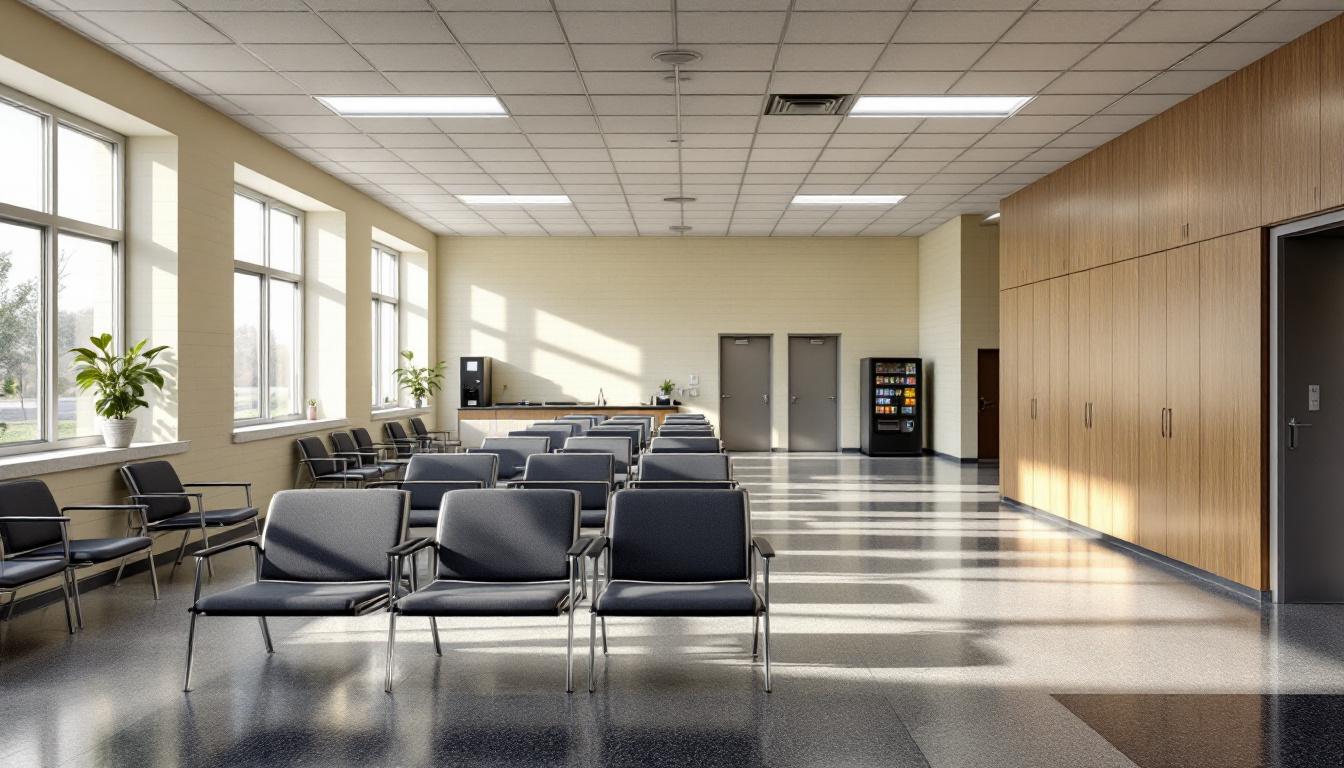
Structured schedules and systematic organization form the backbone of how the population navigates their time at Western Regional Jail, with carefully coordinated routines that supply predictability and order throughout each day. At present, residents typically begin their mornings with standardized wake-up procedures, followed by personal hygiene time and preparation for the day's activities, while staff actively coordinate headcounts and security protocols that ensure smooth transitions between different phases of daily life. The facility generally operates on a regimented schedule that includes designated periods for meals, programming, recreation, and rest, with the population moving through these activities in organized groups that help maintain security while providing structure.
Moreover, living accommodations within the facility typically consist of housing units designed to accommodate multiple residents, with dormitory-style arrangements or smaller cells depending on classification levels and available space. The population usually receives three meals daily in designated dining areas, where residents gather according to scheduled times that help manage crowd control and maintain order throughout the facility. Personal property allowances generally include basic hygiene items, limited clothing, and approved personal effects, while commissary services may offer additional items that residents can purchase to supplement their basic needs.
Whereas daily routines supply essential structure, the facility also typically provides various recreational opportunities that may include exercise periods, television viewing, and outdoor recreation time when weather and security conditions permit. Programming schedules often encompass educational classes, substance abuse counseling, and other rehabilitative services designed to support the population during their stay. Family connections remain important through visitation programs that generally operate on scheduled days and times, while telephone access and mail services supply ongoing communication channels that help residents maintain relationships with loved ones and support systems in the community.
Ready to Connect?
Start communicating with your loved one today
Search for an Inmate
